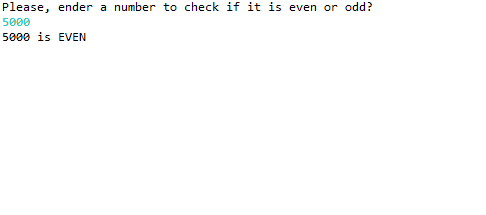Java 中的餘數運算子

本文將介紹 Java 中的餘數運算子及其用途。
在 Java 中使用餘數運算子計算整數除法的餘數
在 Java 中,模或餘數運算子由符號 % 給出。它計算一個數字除以另一個數字的餘數。
假設我們有兩個值:value1 = 20,value 2 = 35。這裡,value1 是被除數,value2 是除數。
例子:
// load package
package JavaPercentagesymbol;
import java.util.Scanner;
// main class starts here
public class SymbolExample {
// main function
public static void main(String[] args) {
// value1/value2%remainder
int value1, value2, remainder;
value1 = 20;
value2 = 35;
System.out.println("value1=20; value2=35");
remainder = value1 % value2;
System.out.println("The remainder is: " + remainder);
}
// primary function ends here
}
// main class ends here
輸出:
value1=20; value2=35
The remainder is: 20
在 Java 中使用提醒運算子獲取字串長度
在下面的程式碼塊中,String[] username 的長度是 4,而 int length 的大小會有所不同。但是,模運算子正確地確定了實際長度。
由於使用者名稱的長度為四,餘數運算子將其除以字串的長度,而不是可變整數長度的長度。
例子:
package JavaPercentagesymbol;
public class SymbolExample {
public static void main(String[] args) {
String[] username = {"John", "Smith", "Martin", "Herry"};
int length;
length = 6 % username.length;
System.out.println("modulo 1: " + 6 % 4);
System.out.println(" 6 % 4 is " + length + ": " + username[length]);
length = 7 % username.length;
System.out.println("modulo 2: " + 30 % 4);
System.out.println(" 70 % 4 is " + length + ": " + username[length]);
length = 40 % username.length;
System.out.println("modulo 3: " + 40 % 4);
System.out.println("60 % 4 is " + length + ": " + username[length]);
length = 49 % username.length;
System.out.println("modulo 4: " + 49 % 4);
System.out.println("60 % 4 is " + length + ": " + username[length]);
}
}
輸出:
modulo 1: 2
6 % 4 is 2: Martin
modulo 2: 2
70 % 4 is 3: Herry
modulo 3: 0
60 % 4 is 0: John
modulo 4: 1
60 % 4 is 1: Smith
取模 % 確定 String[]username 的實際長度來自 username.length 陣列索引。
但如你所見,int length 的長度是 7、40 和 49。
這就是程式如何智慧地返回 username.length 的剩餘部分,而不是給我們剩餘的無序 int length 值。
在 Java 中使用餘數運算子檢查偶數/奇數
下面的程式是一個入門級的 Java 邏輯構建器。它確定(整數)中的給定輸入是偶數還是奇數。
例子:
package JavaPercentagesymbol;
import java.util.Scanner;
public class SymbolExample {
public static void main(String[] args) {
int value;
try (Scanner in = new Scanner(System.in)) {
System.out.println("Please, ender a number to check if it is even or odd?");
value = in.nextInt();
}
// determine the even value%2==0 will always be even
if ((value % 2) == 0) {
System.out.println(+value + " is EVEN ");
// else, it is definitely going to be odd
} else {
System.out.println(+value + " is ODD");
}
}
}
輸出:

Scanner 使用上面程式碼中作為引數傳遞的輸入流生成一個新的 Scanner 物件。
nextInt() 方法採用一串數字並將其更改為 int 資料型別。它從 Scanner 獲得相同的傳遞引數。
Sarwan Soomro is a freelance software engineer and an expert technical writer who loves writing and coding. He has 5 years of web development and 3 years of professional writing experience, and an MSs in computer science. In addition, he has numerous professional qualifications in the cloud, database, desktop, and online technologies. And has developed multi-technology programming guides for beginners and published many tech articles.
LinkedIn